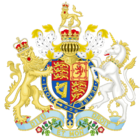Colonial Laws Validity Act 1865 facts for kids
| Act of Parliament | |

|
|
| Long title | An Act to remove Doubts as to the Validity of Colonial Laws. |
|---|---|
| Citation | 28 & 29 Vict. c. 63 |
| Dates | |
| Royal assent | 29 June 1865 |
| Other legislation | |
| Amended by |
|
|
Status: Amended
|
|
| Text of statute as originally enacted | |
| Revised text of statute as amended | |
The Colonial Laws Validity Act 1865 was an important law passed by the Parliament of the United Kingdom in 1865. Its main goal was to clear up confusion about laws made in British colonies around the world.
Before this Act, it was unclear if laws made in colonies were truly valid if they seemed to go against laws from Britain. This Act made it clear that colonial laws were valid and had full power within the colony. The only exception was if a colonial law directly contradicted a British law that was specifically meant to apply to that colony. This helped colonial governments make their own rules, but it also reminded everyone that the British Parliament in Westminster still had the final say.
Contents
Why Was This Act Needed?
Problems Before 1865
Before the Colonial Laws Validity Act, judges in the colonies sometimes canceled local laws. They did this if they thought the colonial law didn't match any English law, even if that English law wasn't meant for the colony. This caused many problems for colonial governments.
The South Australia Example
A good example of this problem was in South Australia. A judge named Justice Benjamin Boothby often struck down local laws. He believed these laws were "repugnant" (meaning they went against) English laws. This made it very difficult for the government to pass and enforce its own rules. The new Act helped fix this issue by setting clear rules.
How the Act Changed Over Time
The Statute of Westminster 1931
By the 1920s, the British government realized that its most important colonies, called "Dominions," should have more freedom to make their own laws. These Dominions included Australia, Canada, the Irish Free State, New Zealand, Newfoundland, and the Union of South Africa.
So, in 1931, the British Parliament passed the Statute of Westminster. This new law stopped the Colonial Laws Validity Act from applying to these Dominions. This meant they could now make laws that might even go against British laws, giving them more independence.
When the Statute Took Effect
- The Statute of Westminster started right away for Canada, the Irish Free State, and South Africa.
- Australia adopted the Statute later, in 1942. It was made to apply from September 3, 1939, which was the start of World War II.
- For individual Australian states, the Colonial Laws Validity Act continued to apply until the Australia Act 1986 came into effect in 1986.
- New Zealand adopted the Statute of Westminster in 1947.
Newfoundland's Special Case
Newfoundland never officially adopted the Statute of Westminster. In the 1930s, during the Great Depression, Newfoundland faced serious money problems. Because of this, they gave up their "responsible government" (meaning they stopped governing themselves) in 1934. From then on, Newfoundland was ruled by a Governor and a special Commission of Government. The Colonial Laws Validity Act continued to apply to Newfoundland until 1949, when it joined Canada and became its tenth province.
The Act Today
The Colonial Laws Validity Act is still in force in many other self-governing British territories around the world. It helps define how laws passed in these territories relate to laws passed by the British Parliament. It also makes sure that decisions made by local governments in these territories are legal. Only the Parliament of the United Kingdom can change this Act.
See also
- Statute of Westminster 1931
- Canada Act 1982
- Australia Act 1986
- Constitution Act 1986

